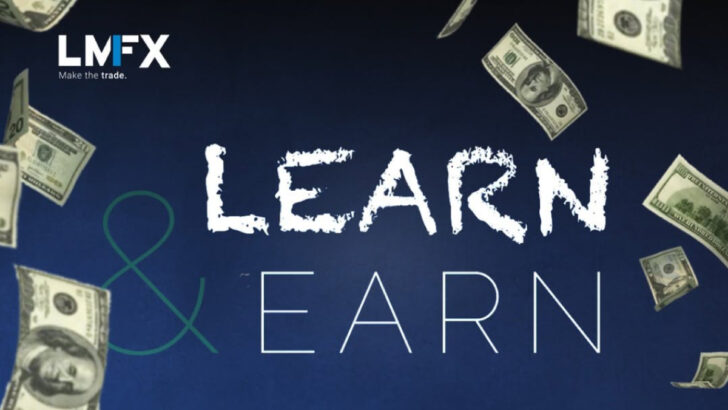Start investing in AI Stock on IC Markets - AAPL, AMZN and more!


Invest in AI Stocks on IC Markets
Are AI Stocks the next big thing?
There is no doubt that one of the most talked about sectors at the moment is the AI space.
Microsoft and Google are facing off.
Just this week, Microsoft launched its AI-powered search engine, where they have integrated Bing with ChatGPT to shake up an area that Google has dominated.
Meanwhile, Alphabet (Google’s parent company) shares have taken a hit of nearly 7.5% in the last week after its Bard AI chatbot gave an incorrect answer in a promotional video.
All this adds up to volatility and great trading opportunities for investors.
Whilst the battle of the big boys rages on, some traders are looking to some of the smaller AI companies for potential targeted growth trades.
In a market that is still wary of downside risks as central banks remain hawkish, picking the right stock, and indeed, the right side of the trade becomes more and more important, and traders need up-to-date market information at their fingertips to take advantage of opportunities as they arise.
This is where IC Markets market news comes in handy.
IC Markets market news provides traders with the latest information they need to keep track of key economic events.
IC Markets provides investors with the opportunity to invest across the AI market with great pricing and liquidity and allows clients to trade on some of the lesser-known players in the market with the confidence of being backed by one of the world’s biggest CFD brokers.
Trade AAPL, AMZN and more!
Analyze the top 20 AI stocks with fast execution and superior technology.
Invest in AI Stocks on IC Markets
What is the securities market?
A securities market is a place where shares of publicly listed companies can be bought and sold over the counter or through a central exchange.
The securities market, also known as the stock market, has become a free market economic mechanism by itself.
In this mechanism, the company has the ability to sell a portion of ownership to a willing outside party in exchange for funding.
The securities market or stock market offers investors the opportunity to increase their income.
Through such a market, investors do not need to pay a large amount of daily expenses and start-up costs of the enterprise, and take high risks to establish a company by themselves, and have the opportunity to increase their income.
On the other hand, the sale of stock by the company does help the company itself expand exponentially.
When you buy stock in a company, usually the company’s wealth also increases. So, by trading securities or the stock market, investors and company owners can achieve a win-win situation.
However, depending on the number of stocks purchased, there is a small or large negative risk, that is, in a trading environment, investors can lose money.
When a stock trader owns a company that loses value, the trader also loses money. If a trader decides to dump his stock when the company loses value, he will sell at a loss.
Go to IC Markets Official Website
The market segments of the stock market
There are many components of the stock market to consider when making a purchase or contemplating purchasing stock in a public company.
The stock market can be divided into two parts: the primary market and the secondary market.
1. Primary market
This is where securities are initially created.
It is a public market where a company’s stock is bought and sold for the first time.
Moreover, investors buy and sell directly from the issuing company.
The first priority of Tier 1 listed company is to attract investors and open the door for investors interested in buying the company’s shares by virtue of the company’s reputation.
The primary market is mainly composed of large investment institutions such as investment banks and hedge funds.
2. Secondary market
In the secondary market, investors trade the shares themselves.
The company that originally sold the stock before then is not a direct participant in the transaction.
Buying and selling stocks that investors already own is a basic concept of the stock market, even though stocks are also being sold in the primary market which is the stage for the initial issuance.
3. OTC market
The OTC market, or off-exchange trading, is an option where investors can participate in buying and selling stocks in a decentralized marketplace.
The so-called decentralization means that the transaction of buying and selling will take place between two parties, for example, between a trader and a broker.
Trading is usually done electronically, such as by phone, email or trading platform, rather than through a local stock exchange.
In the over-the-counter market, usually, stocks and stock prices that are not generally listed on a stock exchange are traded.
Invest in AI Stocks on IC Markets
What you should know about Stock investment
Stock Exchange is a traditional intermediary in which securities such as stocks and bonds are exchanged between a securities broker and a trader.
Stock exchanges facilitate the issuance and redemption of financial instruments, including the payment of income and dividends.
Other assets that can be listed on a stock exchange include derivatives, consolidated trusts, bonds and collective investment products.
In addition to the obvious, investing and trading a company’s stock, there are many alternative ways that can be used to guide the establishment of trading strategies, with the possibility of investing in a company’s stock as the target and making a profit.
1. Value investing
This is a simple investment strategy that selects and trades stocks whose nominal value is lower than their intrinsic value.
This type of investor (value investor) actively seeks out undervalued stocks in the belief that they will be rewarded.
This type of investment does not require you to have a financial background, but before entering any trade or buying stocks, it is recommended that you understand what trading is and understand basic financial knowledge.
2. P/E Ratio
The price-earnings ratio is an indicator of the ratio of a company’s current stock price to its earnings per share.
The price-earnings ratio is calculated as follows:
By taking the stock price of the company and dividing it by its earnings per share (EPS) = market value per share.
The P/E ratio is the dollar amount that a trader can expect to invest in a company in order to receive one dollar of that company’s earnings.
Take the company’s stock price and divide it by the company’s earnings per share (EPS), which equals the market value per share.
The P/E ratio is the dollar amount a trader needs to invest in order to achieve $1 in a company’s profit.
3. Dividend stocks
Dividends are a way for companies to reward shareholders who hold shares in their company.
Dividends are generally paid quarterly in cash. If the return on investment is good, the payment of dividends can be very stable.
At the same time, dividends themselves can become another opportunity to increase stock purchases.
This is a longer-term investment with lower risk.
These companies are generally more financially sound, with dividends that increase over time. Moreover, such companies promise to pay dividends on the company’s stock.
Invest in AI Stocks on IC Markets
Types of Stock Trading
1. Swing trading
Swing trading has become a very popular short-term trading method when it comes to stock and options trading.
Swing traders generally hold positions for no more than a day, but can take up to two weeks.
The goal of swing trading is to identify the overall trend and to take profits when the market is in a trend.
When swing trading, when the market moves rapidly, it is advantageous to use technical analysis to monitor this change.
2. Intraday trading
The speculative buying or selling of a stock, a commodity, a stock index or a currency, all on the same day.
Positions can be opened the second the market opens or throughout the day, but all positions must be closed by the close of that trading day.
Traders who employ this trading strategy are often referred to as day traders.
There are different types of traders, you can be a longer-term or a shorter-term trader.
If you trade in a short period of time, you will make more profits, and at the same time, you will have a greater risk of loss. This is a way to trade in and out quickly in a short period of time.
Go to IC Markets Official Website
Trading stock CFDs in IC Markets
IC Markets simplifies stock CFD trading, not only providing you with more than 2100 stocks but also providing leverage up to 1:30.
IC Markets provides 24-hour multilingual customer service support, as well as safe and stable MT4 and MT5 trading platforms.
You can trade on the platform with confidence. In addition, all traders’ funds are independently deposited in segregated accounts in international banks.









